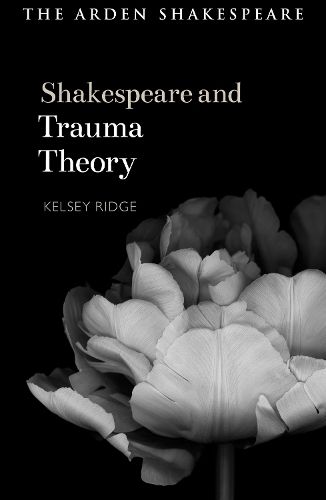Readings Newsletter
Become a Readings Member to make your shopping experience even easier.
Sign in or sign up for free!
You’re not far away from qualifying for FREE standard shipping within Australia
You’ve qualified for FREE standard shipping within Australia
The cart is loading…






Kelsey Ridge provides a thorough overview of how we can use trauma theory to understand Shakespeare through its intellectual and practical application. Ridge covers the history of trauma theory from Freud to Holocaust studies and PTSD by drawing on psychoanalytic theory, feminist theory, post-colonial theory and disability studies.
The Rape of Lucrece, Titus Andronicus, and Merchant of Venice provide initial case studies of trauma-informed analyses of Shakespeare, whilst a focus on adaptation furthers our understanding of key plays and productions. These include The Tempest, The Percys' Opera inspired by Henry IV, Part 1, and Cry Havoc!, a production by the trauma-focused theatre company De-Cruit, which together suggest how trauma theory can be used as a tool for analysing Shakespeare as well as engaging with the lived experience of trauma itself. In communicating these interpretations, Ridge provides a set of tools for those wanting to conduct their own trauma theory analyses of Shakespeare, productions and adaptations themselves. A dynamic resource for academics, students, and theatre practitioners, Shakespeare and Trauma Theory includes suggested readings and resources as well as a glossary of key terms to support understanding of an important and growing field in Shakespeare studies.
$9.00 standard shipping within Australia
FREE standard shipping within Australia for orders over $100.00
Express & International shipping calculated at checkout
Kelsey Ridge provides a thorough overview of how we can use trauma theory to understand Shakespeare through its intellectual and practical application. Ridge covers the history of trauma theory from Freud to Holocaust studies and PTSD by drawing on psychoanalytic theory, feminist theory, post-colonial theory and disability studies.
The Rape of Lucrece, Titus Andronicus, and Merchant of Venice provide initial case studies of trauma-informed analyses of Shakespeare, whilst a focus on adaptation furthers our understanding of key plays and productions. These include The Tempest, The Percys' Opera inspired by Henry IV, Part 1, and Cry Havoc!, a production by the trauma-focused theatre company De-Cruit, which together suggest how trauma theory can be used as a tool for analysing Shakespeare as well as engaging with the lived experience of trauma itself. In communicating these interpretations, Ridge provides a set of tools for those wanting to conduct their own trauma theory analyses of Shakespeare, productions and adaptations themselves. A dynamic resource for academics, students, and theatre practitioners, Shakespeare and Trauma Theory includes suggested readings and resources as well as a glossary of key terms to support understanding of an important and growing field in Shakespeare studies.